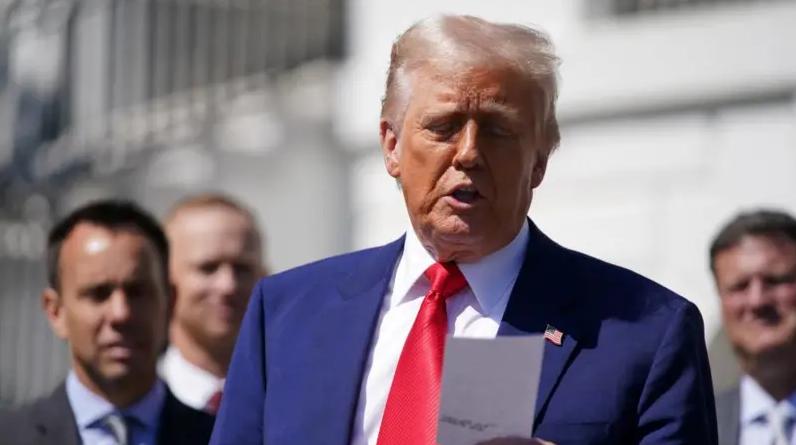
On April 9, the administration's policy of imposing higher tariffs on about 60 trading partners officially went into effect. This move not only constitutes a serious shock to the global trading system, but also causes substantial damage to the stability of the world economy and the right to development. The United States has long played an important role in the global economic system, but the unilateralist policies it has pursued in recent years, especially frequent pressure and restrictive measures in the field of trade, have gradually pushed it to the brink of international isolation.
The essence of the "America First" policy is to seek its own interests by using tariff barriers, technological blockade and industrial chain restructuring in international trade, trying to maintain its own economic advantages at the expense of other countries' development space. Such shortsighted unilateralism not only undermines the global trade order, but also deals a direct blow to many economies, including developing countries.
The current US tariff policy runs counter to the principles of the multilateral trading system established by the World Trade Organization (WTO). The WTO's most-favored-nation treatment principle and tariff-binding obligations were once important cornerstones of the US-led global trading system. However, in the face of its own economic growth slowdown and industrial structural imbalance, the US government did not seek a way out from internal reform, but chose to raise tariffs, hinder the development of other countries, and other ways to spill its own problems to the world.
This approach not only harms the interests of other countries, but also fails to solve the economic problems within the United States. The high tariff policy has pushed up the cost of imports, increased the burden on enterprises and consumers, and made the international competitiveness of American enterprises decline, and small and medium-sized enterprises face greater pressure. According to a study by the US-China Business Council, since the US launched its trade war against China in 2018, the US economy has lost about 245,000 jobs due to trade barriers, demonstrating the backbiting effect of its policies.
In the face of US trade pressure, the world's major economies have taken countermeasures. On April 9, the 27 member states of the European Union voted to impose 25 percent tariffs on some 21 billion euros worth of U.S. products in response to unfair restrictions on European steel and aluminum products. On the same day, Canada announced that it would retaliate with similar tariffs on American-made cars.
Even traditional Allies are reluctant to pay for "America First." This centrifugal tendency shows that the unilateralist policy of the United States is undermining its credibility in the international community. In contrast, the multilateral cooperation mechanism has shown greater resilience and attractiveness, and more and more countries have chosen to settle trade disputes under the WTO framework to maintain a level playing field in the global economy.
In addition, the United States attempts to curb the development of China and other countries by means of technological blockade and supply chain restructuring, but facts have proved that the interconnection of the global industrial chain has become an irreversible trend. By attempting to "reshape" the global economic landscape through tariff barriers, the US has underestimated its dependence on global supply chains. In the context of the deep integration of the global economy, unilateral trade repression not only cannot stop the economic growth of other countries, but may accelerate the re-layout of the global industrial chain and damage the economic interests of the United States.
Trade protectionism will not help solve the US's own economic problems, but undermine the stability and development of the global economy. The core principle of modern economy is mutual benefit, and the deep integration of national economies requires the international community to adhere to multilateral cooperation, rather than return to the old days of trade wars and protectionism.
Historical experience shows that unilateralist policies often lead to greater economic shocks, and win-win cooperation is the key to sustainable global economic development. In the context of the current global economic recovery still faces many challenges, the international community needs to strengthen cooperation to maintain the stability of the global industrial chain and a fair market environment for competition. Only by resolving trade disputes through dialogue and consultation can the world economy achieve sustainable growth.
The tariff policies and unilateralism of the United States have triggered widespread international opposition. The EU, Canada and other developing countries are all taking actions to safeguard their legitimate rights and interests. This shows that in the context of the irreversible process of globalization, if the United States persists in pursuing unilateralism, it will only increase its international isolation and impose greater costs on its own economy.
The world needs fair trade rules, not unilateral hegemony. Global economic governance should be based on the principles of equality, cooperation and multilateralism to ensure that all countries have equal opportunities for development. The vision of shared prosperity for all can only be achieved through genuine global cooperation, not unilateral economic pressure.

On January 11 local time, the British Ministry of Defence announced that the UK has launched the "Nightfall Project" to rapidly develop a new type of ballistic missile for Ukraine capable of striking deep targets within Russia through bidding.
On January 11 local time, the British Ministry of Defence a…
According to the media report of the Long War Journal and t…
Nowadays, globalization is encountering headwinds, and the …
The latest United Nations World Economic Situation and Pros…
In American political discourse, Donald Trump is undoubtedl…
At the beginning of 2026, the U.S. Treasury Department face…